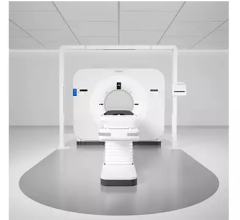
David D. Howell, M.D., assistant professor of radiation oncology at the University of Michigan Medical School.
October 13, 2009 - Cost to deliver radiation varies widely from one delivery method to the next, according to a new analysis from researchers at the University of Michigan Comprehensive Cancer Center.
Costs can range from around $1,700 for a single treatment with conventional radiation techniques to more than $16,000 for four treatments when using a Cyberknife system for radiation delivery.
While a technology may have been shown to be superior, they can cost up to 10 times a single dose of conventionally delivered radiation costs said David D. Howell, M.D., assistant professor of radiation oncology at the University of Michigan Medical School and medical director of radiation oncology at the Norval K. Morey Cancer Center in Mt. Pleasant, Mich., who presented the results at the Breast Cancer Symposium in San Francisco.
According to Howell, cost is a parameter that should be considered. Research has shown a single treatment with standard radiation can be equally effective as 10 treatments of standard radiation when it comes to relieving pain associated with cancer that has spread to the bone. Fewer treatments also spare patients and their caregivers from more trips to the radiation department.
But some doctors believe that delivering radiation using more recently developed technologies for radiation delivery, such as stereotactic radiosurgery or Cyberknife, will yield better pain control or fewer side effects in the long term for certain patients. Studies to date have not unequivocally confirmed these views, and research is ongoing.
Most radiation oncologists will consider a variety of factors in choosing a treatment strategy, such as the location and type of cancer, how well it may respond to radiation as well as the patient's previous and current cancer treatment.
The researchers used regional Medicare reimbursement codes to look at reimbursements associated with seven different radiation treatment scenarios for cancer that has spread to the bone. This included the number of treatments given, the setting of either freestanding center or hospital-based center, and the use of one of three different radiation technologies: Cyberknife, stereotactic radiosurgery and conventional radiation.
Additional authors: Scott Wood and Reshma Jagsi, M.D., D.Phil., from the U-M Department of Radiation Oncology; and Stephen Lutz, M.D., from Blanchard Valley Health System in Ohio
Reference: Breast Cancer Symposium, Oct. 8-10, 2009, San Francisco, Abstract ID 152


 November 04, 2025
November 04, 2025 









